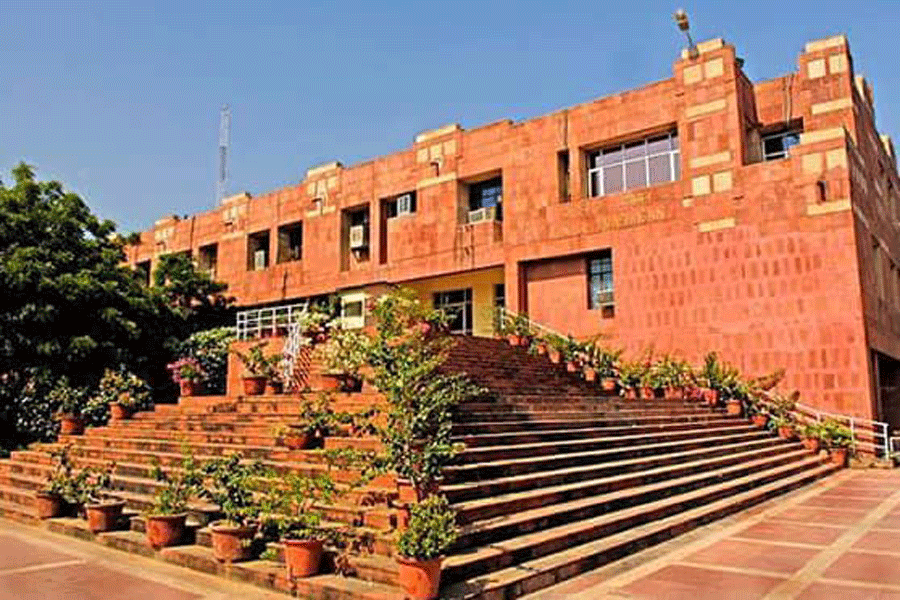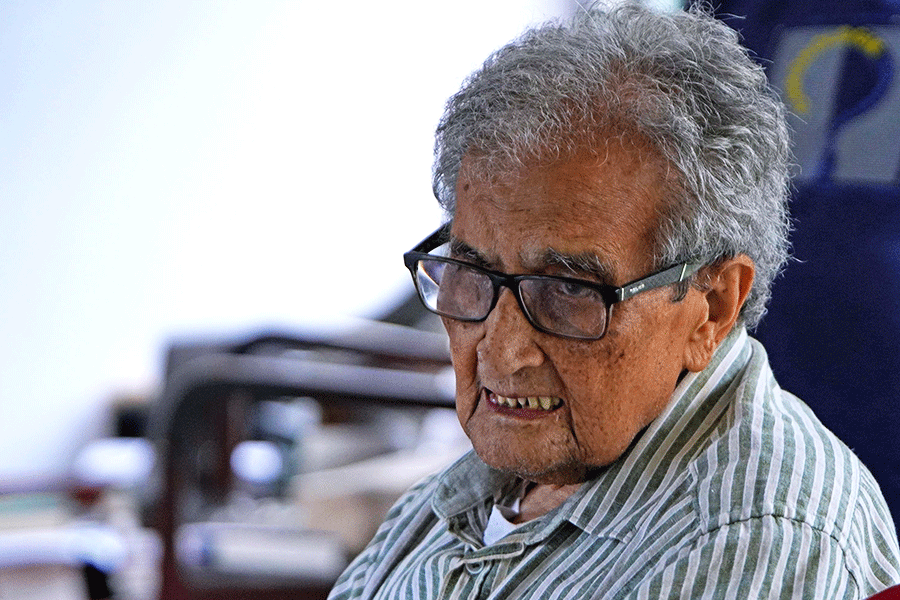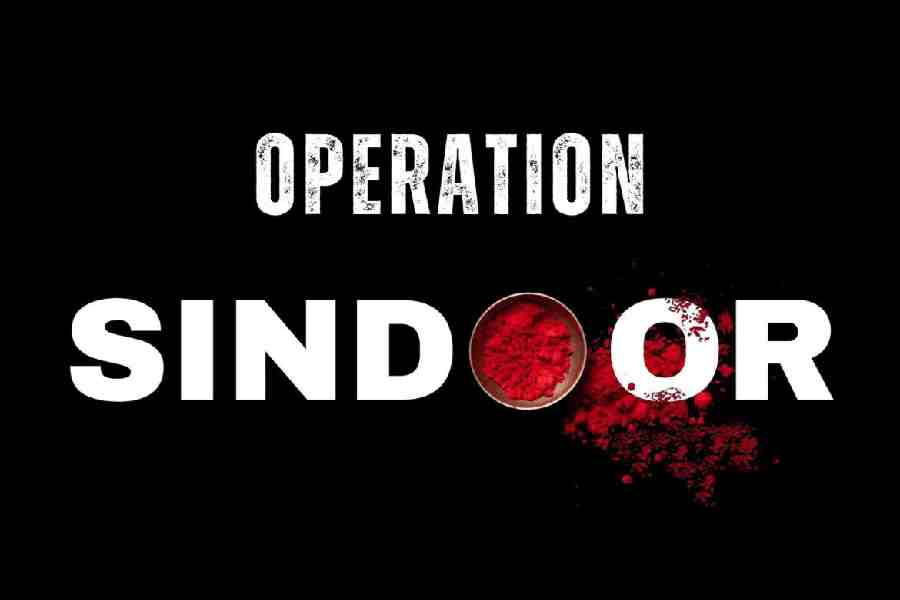Historians who have taught at Jawaharlal Nehru University (JNU) are among those who have asked vice-chancellor Santishree Dhulipudi Pandit to reverse her “hasty decision” to relocate a prestigious research library on the campus.
Serving faculty are sending a separate letter to the VC opposing the move. A signature campaign is underway to stall the shifting of some 18,000 items of primary research material, books and thesis of the Centre for Historical Studies (CHS) library to two different buildings. Students have also planned a sit-in on Tuesday at the building from where hundreds of tomes have already been moved.
The signatories to the email sent to the VC on Monday include those who are recognised for establishing the fundamentals of historical research and teaching in free India. They are professors Romila Thapar, Harbans Mukhia, K.N. Panikkar, Suvira Jaiswal, Mridula Mukherjee, Dilbagh Singh, Aditya Mukherjee, Neeladri Bhattacharya, Yogesh Sharma, Arvind Sinha, Kumkum Roy, Ranabir Chakrabarty, Sucheta Mahajan, Janaki Nair, Radhika Singha, Tanika Sarkar and Supriya Verma.
They wrote: “Since the grant for the building of the CHS library was received expressly for this purpose from the UGC, it is quite disturbing to hear that the building is sought to be put to alternate use after several decades of its existence.
“The CHS received a Department of Special Assistance (DSA) status from the UGC in the late 1980s that was aimed at developing research and teaching in the centre. The faculty requested that the grant promised be allowed to be used not for more faculty positions, as was the current practice, but to build an exclusive departmental library of the CHS, necessary for teaching and research at an advanced level.”
They added: “Permission was given and the grant received was used to construct the CHS library building. It may be noted that the CHS faculty in fact gave up its own promotion avenues by choosing to build the library rather than receive more posts.”
The email mentions the “primary sources” that the library gathered over the years — such as the Tamil Nadu archives, the French archives, volumes of inscriptions and literary texts. In the context of historical research, excavations, inscriptions, minutes of legislative proceedings and original government documents are considered “primary sources”. The books that historians write based on these are called “secondary sources”. Regular libraries mostly have “secondary sources”, while “primary sources” are stored at archives or museums.
The professors said in the email: “The library was able to bid for and get from the University of Chicago the rich personal collection of the eminent scholar Bernard Cohn. Collections of other eminent scholars like Satish Chandra and D.N. Gupta were also housed in this library.
“An intensive tutorial-based and research-based teaching programme that the CHS conducts would have been virtually impossible without such a departmental library available to the students. In fact, following the CHS example, other centres have also set up departmental libraries in the university.”
The professors further said: “Given this history of the CHS library, as faculty who have nurtured this institution over the past several decades, we feel that the library’s relocation and dispersal would essentially destroy this fine institution which was funded specifically for the purpose. We, therefore, sincerely urge the university to reverse this hasty decision which appears to have been taken without even consulting the CHS faculty.”
This newspaper reported last week that the library’s premises had been redesignated as the Special Centre for Tamil Studies — created with a grant from the Tamil Nadu government.
A circular by the university registrar Ravikesh on August 4, said: “The proposed arrangement would not only facilitate the activities of one of the important Indian languages but also ensure prudent use of space on the campus without affecting the academic activities of CHS or any other centre.”
Academics fear that the library as a unified entity may be lost forever. An appeal is currently being circulated online by students and alumni to “the national and global academic community at large, including JNU alumni as well as teachers’ associations, student bodies and individual professors and students across the world…. This is also an appeal to all relevant public officials.”
The appeal seeks endorsements for this petition to be submitted to Union education minister Dharmendra Pradhan, Tamil Nadu chief minister M.K. Stalin, vice-chancellor Pandit and CHS chairperson Heeraman Tiwari. The petition iterates the points in the letter above.
The appeal also calls upon people to ask the Tamil Nadu government to demand accountability from the VC, spread the word through social media, contact the relevant public officials and request departments of history, South Asian studies and other social sciences in their universities to issue statements protesting the closure of the CHS Library.
“So far, 1020 signatures of academics and activists across the world have been received,” Saib Bilaval, a PhD candidate at the CHS, told this newspaper.
The JNU Teachers' Association (JNUTA) asked the varsity administration to stop the move. The association said in a statement: "Both the CHS as well as Exim Bank libraries came into existence as a result of special financial assistance being received by the University for the same. They house important resources that faculty, students and researchers can access and there is no question that cramming both of them into the same premises will have adverse consequences for access to them and lead to loss of some of these resources." The Exim Bank library for economics disciplines is one of the spaces where the CHS inventory is being moved to.
JNUTA added: "Like in the case of the two libraries, the University has also received special funds from the Government of Tamil Nadu for the setting up of the Special Centre for Tamil Studies. There is, therefore, no reason for this Centre to be sanctioned the space and infrastructure created and still in use for other purposes. Indeed, such a change in their use would also be in violation of the terms of the financial sanctions through which the two libraries were created."










